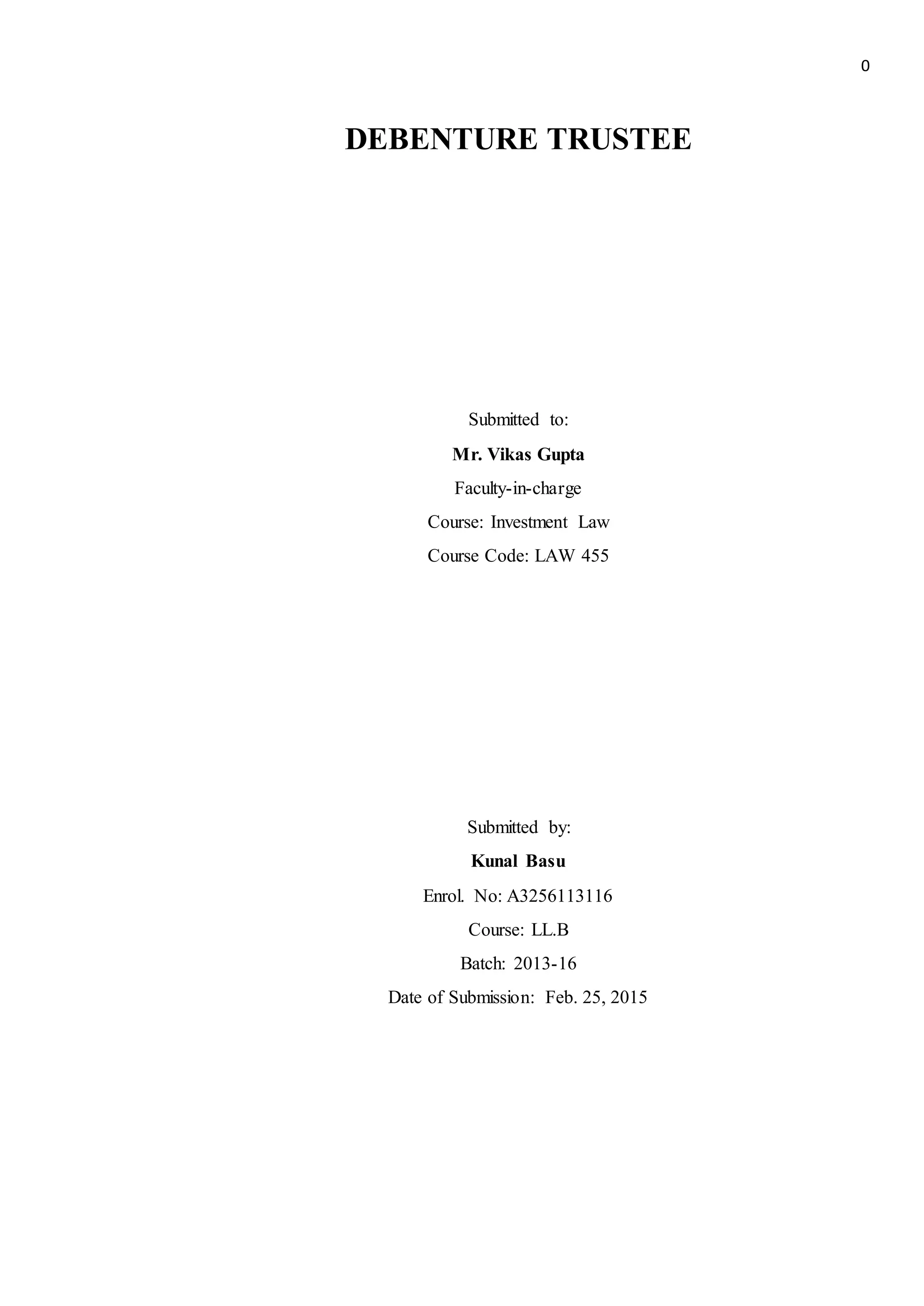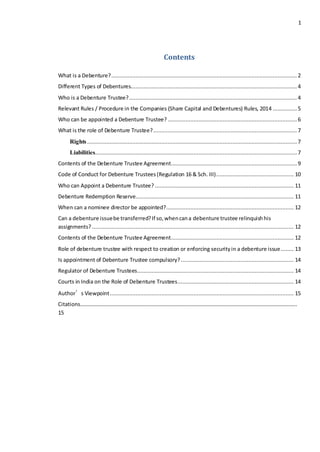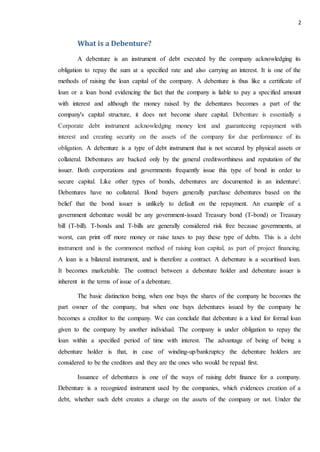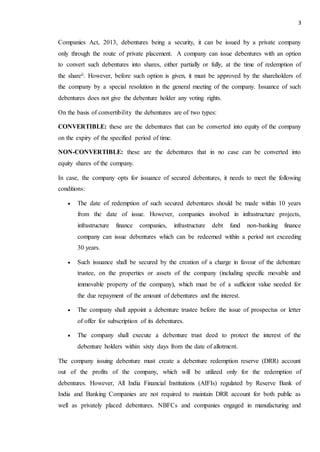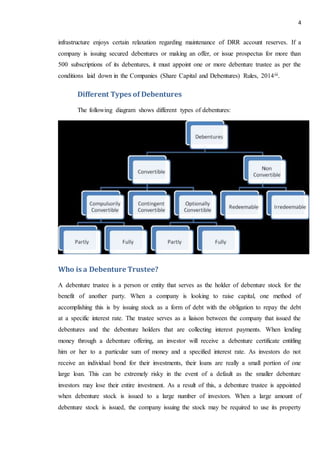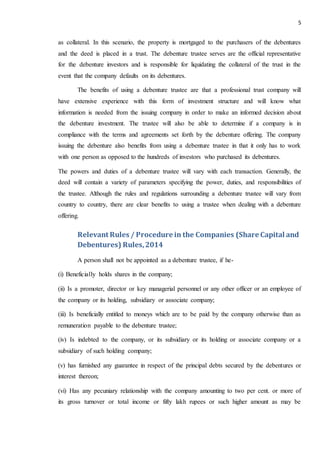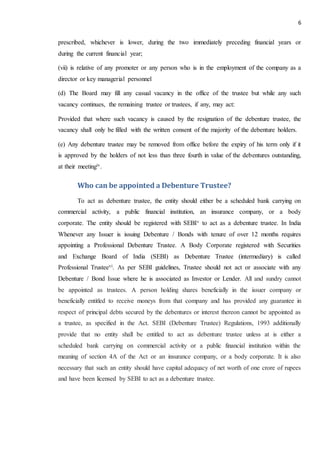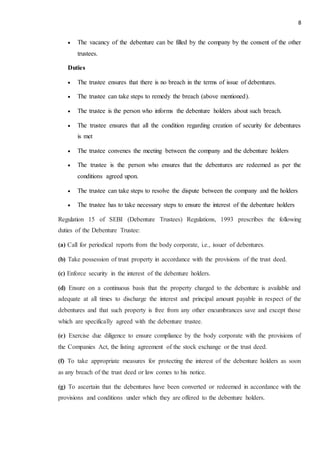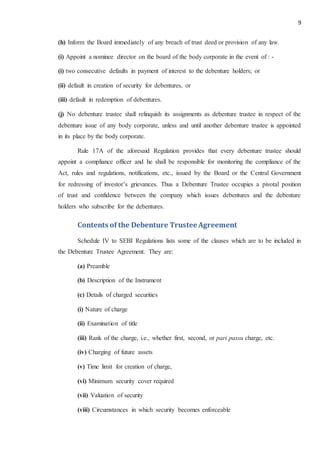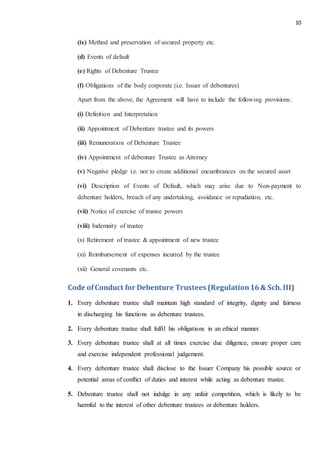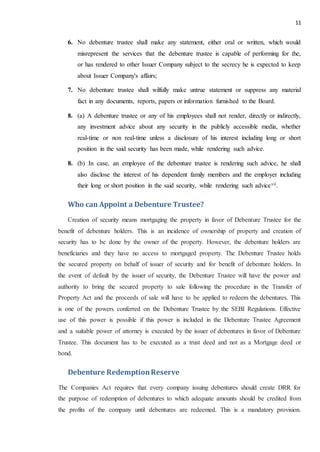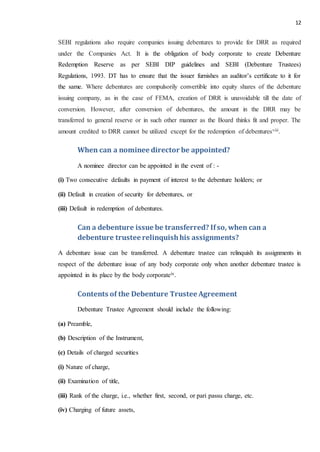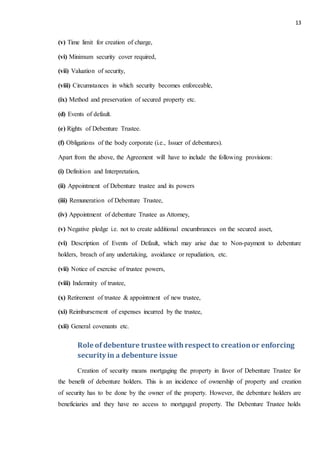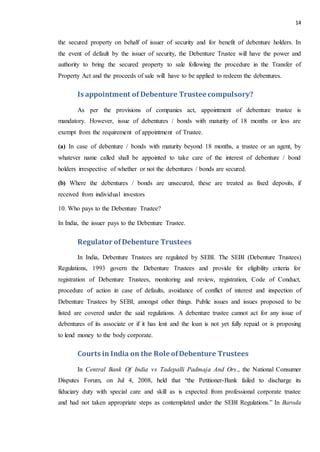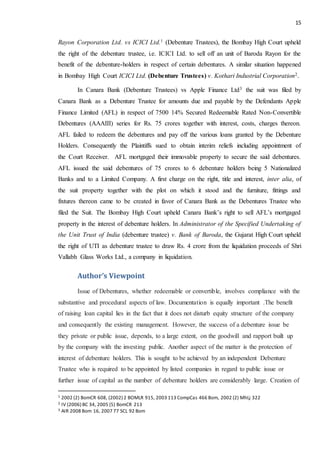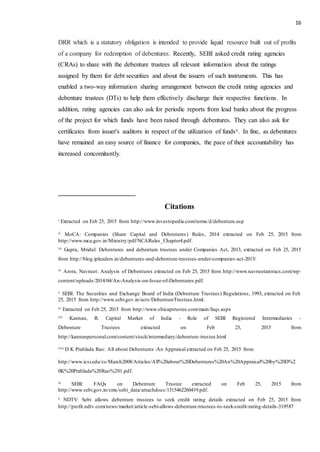This document discusses debentures and the role of debenture trustees. It defines a debenture as a debt instrument issued by a company to investors that must be repaid at a specified interest rate. When large numbers of debentures are issued, a debenture trustee acts as an intermediary between the company and debenture holders. The trustee holds any assets used as collateral, enforces the debenture agreement, and ensures interest payments are made. The document outlines the types of debentures a company can issue, requirements for appointing a trustee, and the trustee's responsibilities to protect debenture holders' interests.
